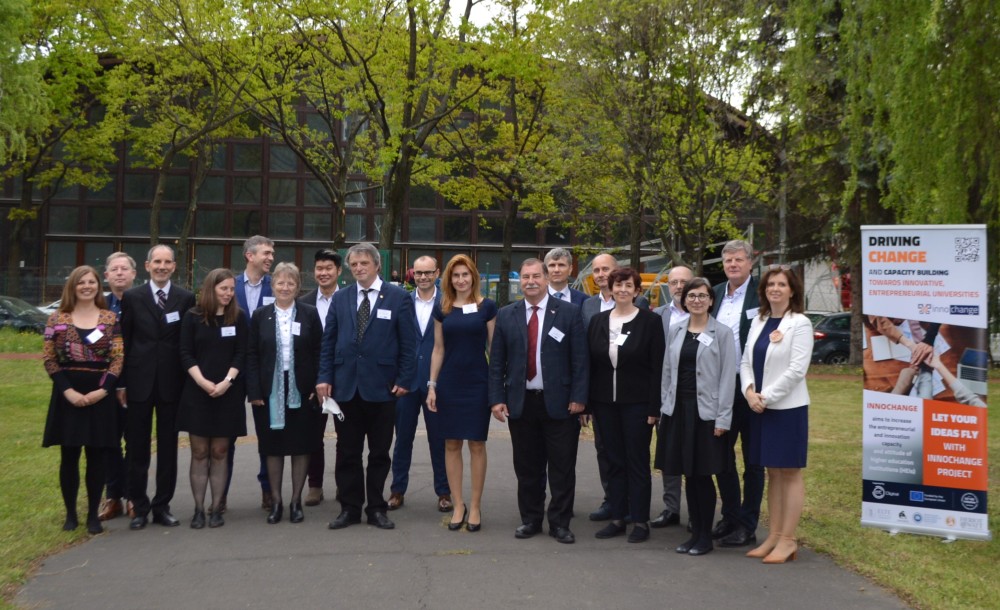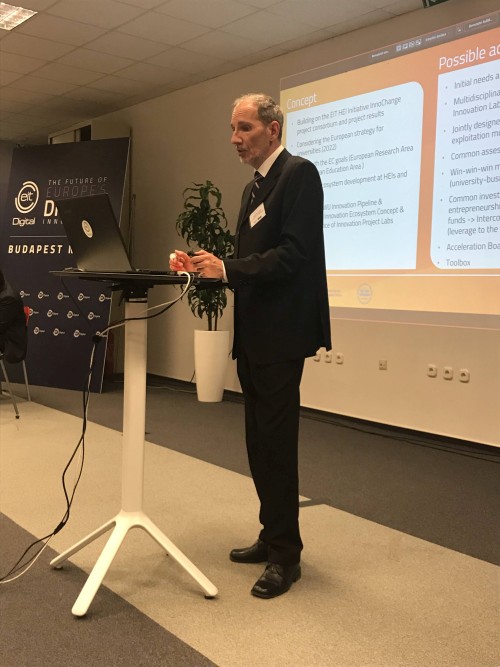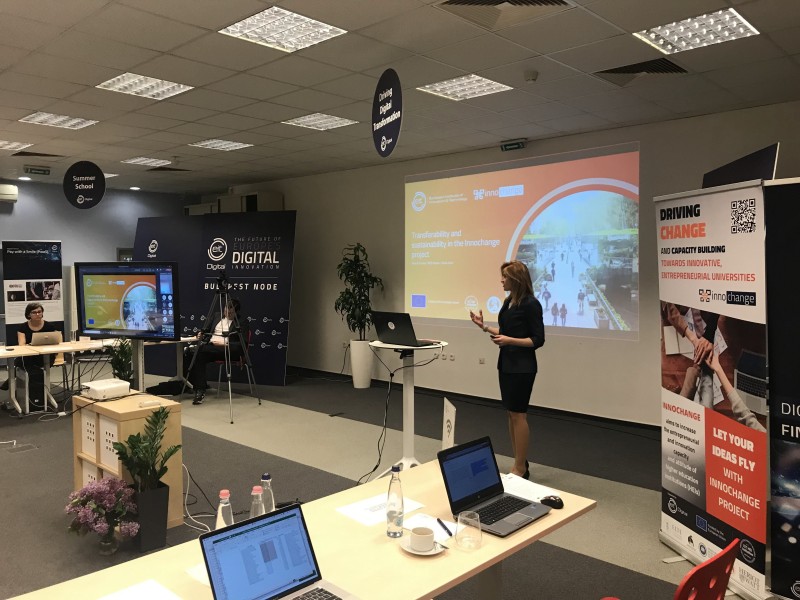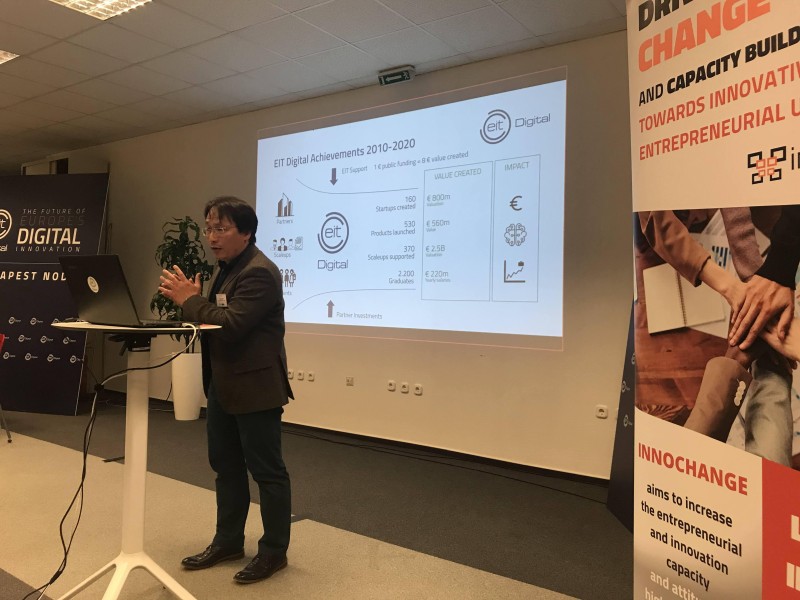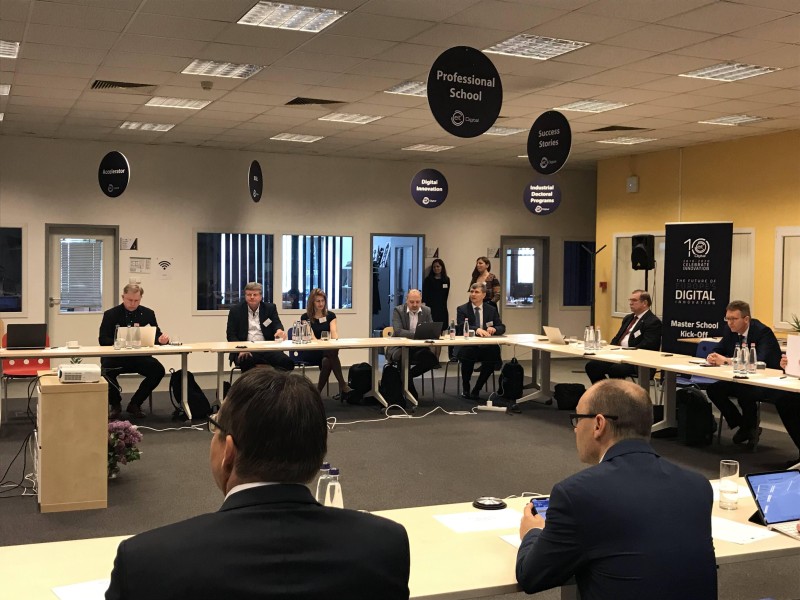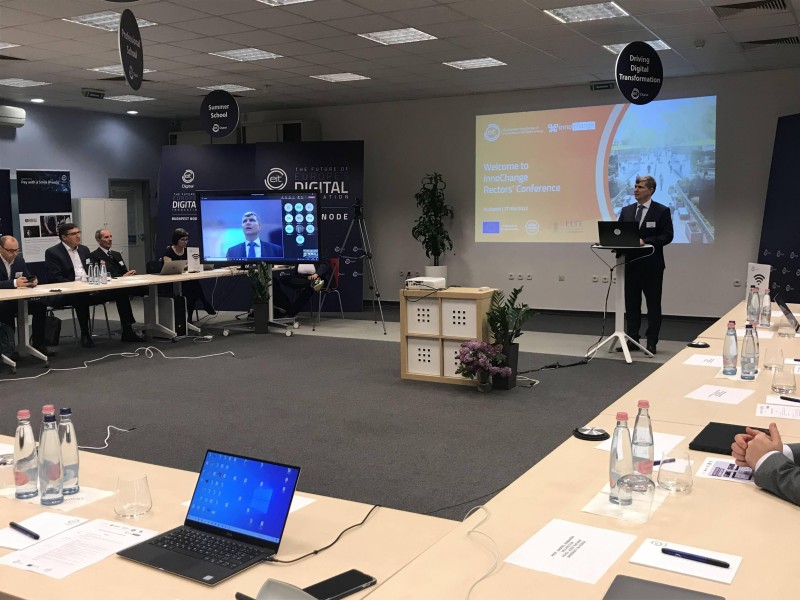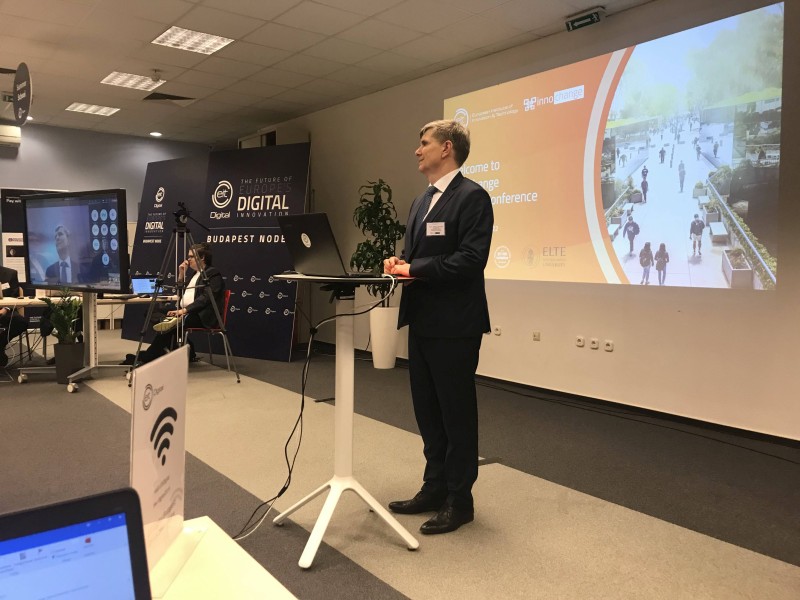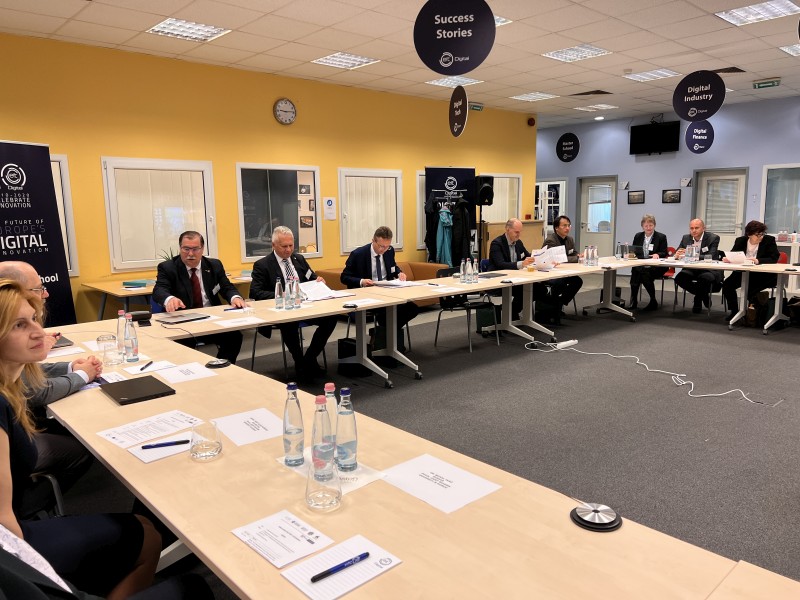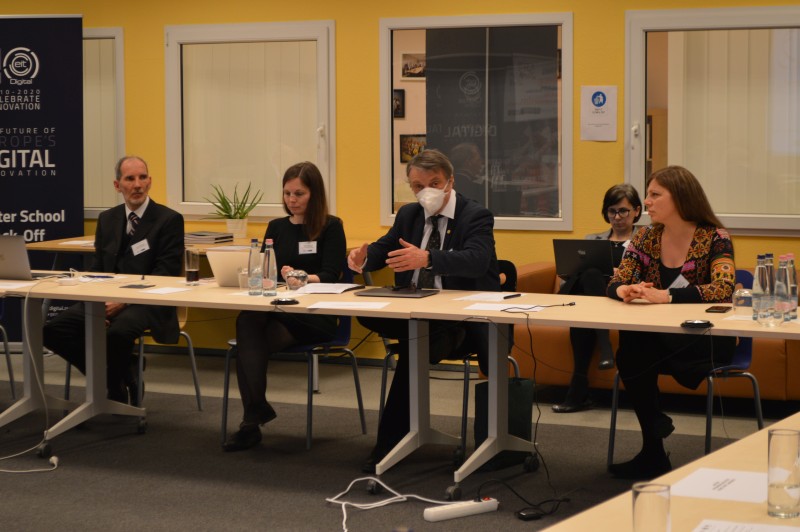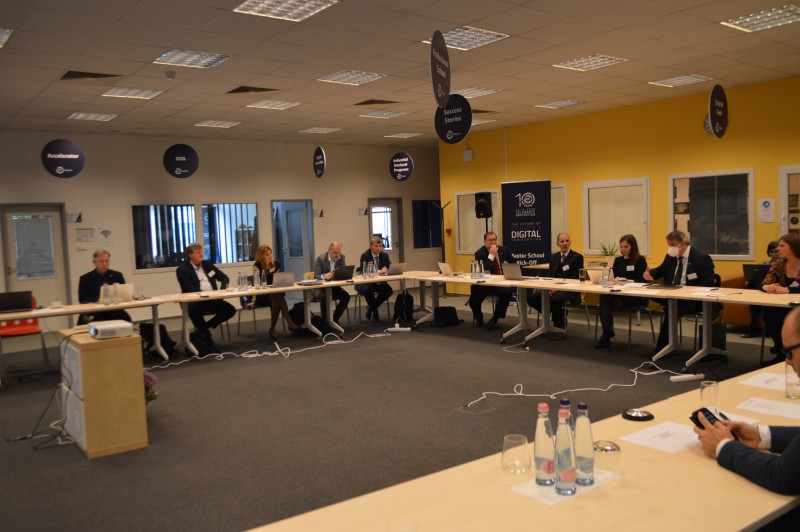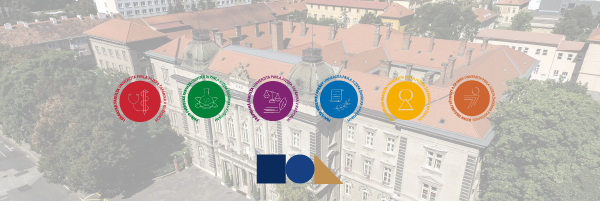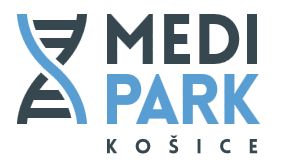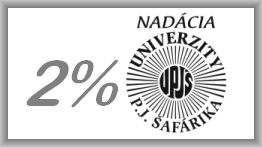
On the 27 April 2022, the leadership of five European universities met at the EIT Digital Budapest Co-Location Centre on the Campus of Eötvös Loránd University as part of one of the pilot projects launched within the EIT (European Institute of Innovation and Technology) HEI Initiative to unlock the innovation potential of higher education institutions.
At the Rectors’ Conference, a key event organised within the InnoChange project, rectors, vice-rectors and representatives of the partner universities (Eötvös Loránd University, Budapest; Babeș-Bolyai University, Cluj-Napoca; Heriot-Watt University, Edinburgh; Pavol Jozef Šafárik University, Kosice and Paisii Hilendarski University, Plovdiv) were finally able to discuss in person the process of increasing the entrepreneurial and innovative capacity of their institutions, their steps towards a third-generation research university model, and their deeper integration into the European Higher Education Area.
The joint work of the InnoChange consortium, led by the Faculty of Informatics of Eötvös Loránd University, started in July 2021, aims to develop higher education institutions towards a third-generation research university model by increasing their innovation capacity. This is to be achieved, inter alia, by strengthening the innovation ecosystems around Central European universities and by developing the entrepreneurial skills of university students and staff. For the second time in this academic year, an online course bringing together the international student community of the five universities has been organized with a special focus on creativity, social responsibility and entrepreneurship. In the spirit of deep innovation, higher education institutions have embarked on structural changes aiming at innovation management practices: university research teams have been assisted from the outset by an innovation consultant to exploit the results in business.
Dr. Balázs Hankó, Deputy State Secretary for Higher Education of the Ministry of Innovation and Technology, welcomed the partners’ efforts to develop the innovation capacities of universities, including the importance of Eötvös Loránd University’s intention to share its experience in European cooperation. He pointed out that thanks to the developments of recent years, Hungarian universities have made significant progress in the world’s higher education rankings, with 11 Hungarian universities, including Eötvös Loránd University, now among the top 5% of 28,000 higher education institutions in the world. The aim of the government is to further expand and strengthen this institutional circle, which is the engine of higher education.
In his speech, Martin Kern, Director of the EIT, highlighted that the EIT’s new Higher Education Initiative aims to support the innovation capacity of universities so that they can contribute even more strongly to finding solutions that could help us tackle global challenges. The EIT, Europe’s largest innovation ecosystem, brings to the initiative 12 years of experience from its 8 Knowledge and Innovation Communities in delivering entrepreneurship education and in multiplying impact through pan-European cooperation.
Dr. László Borhy, Rector of Eötvös Loránd University, emphasized the increased need for academic-industrial collaborations in the education-research-innovation knowledge triangle, which, in his opinion, has a tradition at ELTE. He added that he considered the biggest achievement was that the university’s innovation strategy, supported by the EIT, had put the Faculty of Informatics on a path that was already recognized as a European good practice.
Dr. Zoltán Horváth, leader of the InnoChange project, Dean of the Faculty of Informatics of Eötvös Loránd University, said that he considers the vision of deep innovation as a key to the future of the faculty. In order to develop the innovation service system of partner universities, they rely on the CEEPUS network in Computer Science led by the faculty since 1998, and on the decade-long experience gained within the pan-European EIT Digital ecosystem, as well as on Heriot-Watt University’s innovation management model.
Dr. Zoltán Istenes, Assoc. Prof. at Eötvös Loránd University, InnoChange Deputy Coordinator presented the vision and the aims of InnoChange project (to develop and improve the entrepreneurial education curriculum and associated teacher training; soak up and nurture innovation from all corners of student, faculty, and research activities at university; provide effective support to deserving early-stage innovation projects; build a pragmatic, yet a comprehensive network of multi-faceted industry partnerships; enable support structures for entrepreneurship communities at HEIs through mutual learning. and summarized achieved goals (creation of a new I&E course entitled: „Creativity, responsibility and entrepreneurship”, which aims to form the entrepreneurial mindset and unlock the creativity of students by introducing them the main theories of entrepreneurship and business fundamentals, which was thaugh at each partners’ universities asynchronously with 2 common online sessions; creation of Innovation Management Task Force; organization several innovative workshops and Hackathon, creation teaching community etc.). He remarked that as it was the pilot project there were many uncleaned points were discovered and successfully solved together within consortium.
On behalf of Pavol Jozef Šafárik University in Košice the Rector prof. RNDr. Pavol Sovák, CSc.; Assoc. Prof. Ing. Silvia Ručinská, PhD.; prof. RNDr. Gabriel Semanišin, PhD., prof. PaedDr. Martin Pekár, PhD.; RNDr. Ing. Michal Tkáč, PhD. and UPJŠ project management (PaedDr. Eva Jenčušová and Ing. Ivan Pezlar) attended the conference.
Silvia Ručinská, Vice-Rector for Internationa Relations and Mobility at UPJŠ in Košice, responsible for InnChange Transferability and sustainability, expressed the fact that each university has to react to some trends from the external environment and also that internal sources for institutional change are not less important to take into account. In connection with reached deliverables, which can be transferred there is a chance to make an institutional change that will lead to better, innovative universities.
Gabriel Semanišin, Vice-Rector for Informatisation and Quality Management, InnoChange project Guarantee at UPJŠ in Košice lead the part of the conference which was dedicated to the futute steps in the project. During the rich roundtable discussion these topics were discussed:
- Joint education – “One University” inter & intra University cooperation (education & research & innovation)
- Easy interoperability (ECTS transfer, micro credential system)
- Community building (for students, professors/researchers, admin staff) to support institutional change
- How could other faculties be involved? (transferability)
At the end of the conference, he expressed the pleasure of a fruitful discussion hoping for further face to face meetings.


